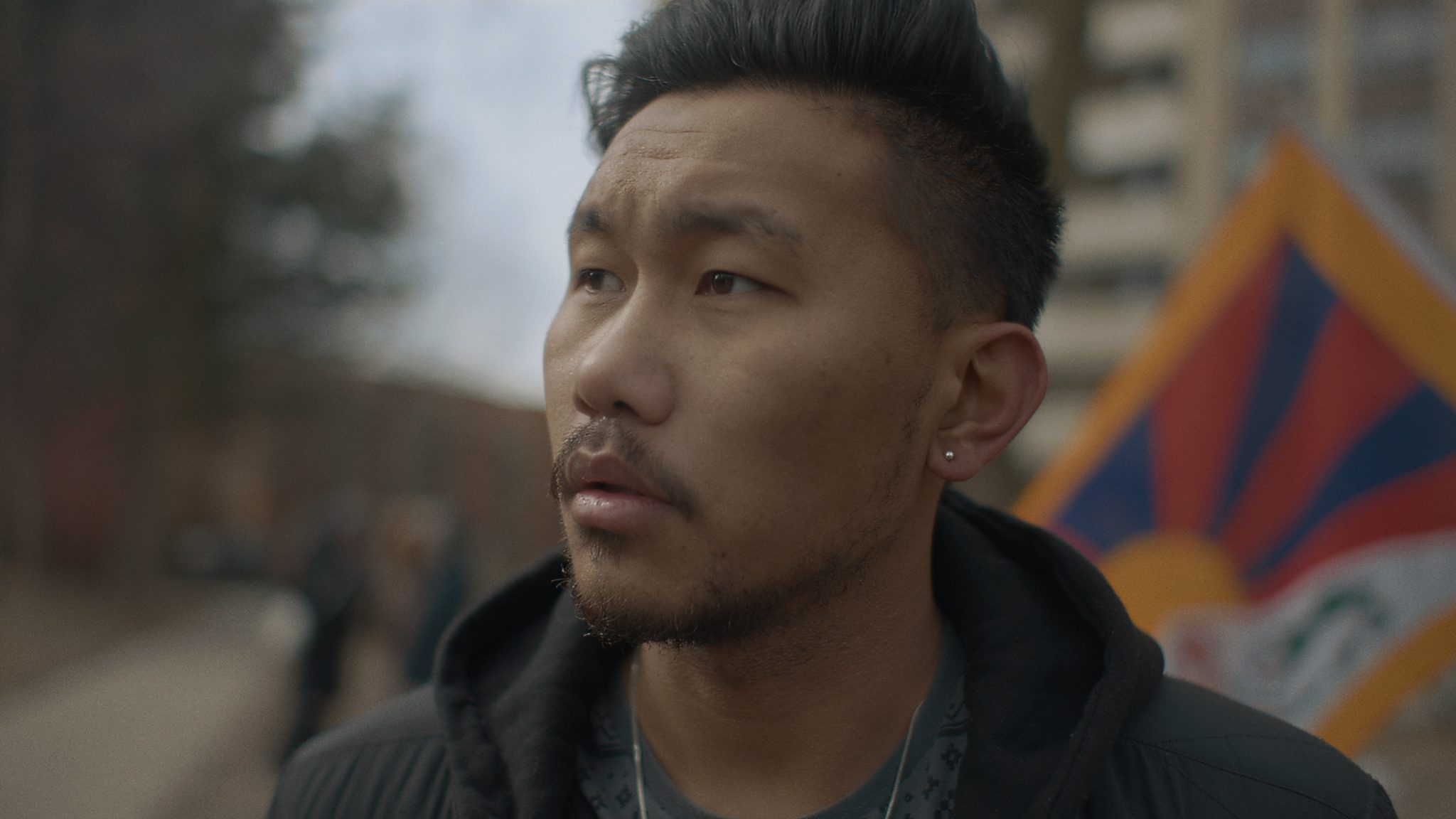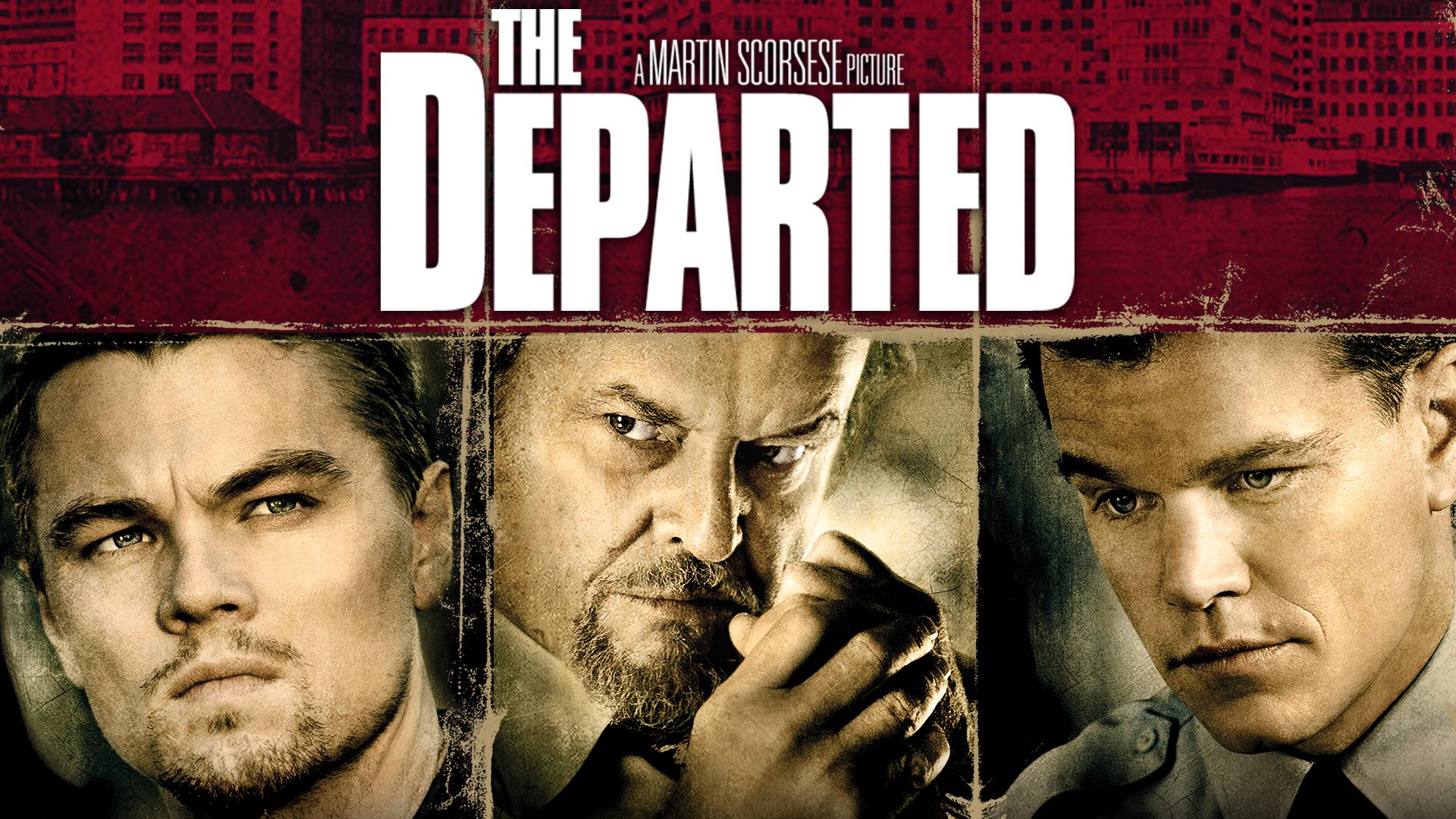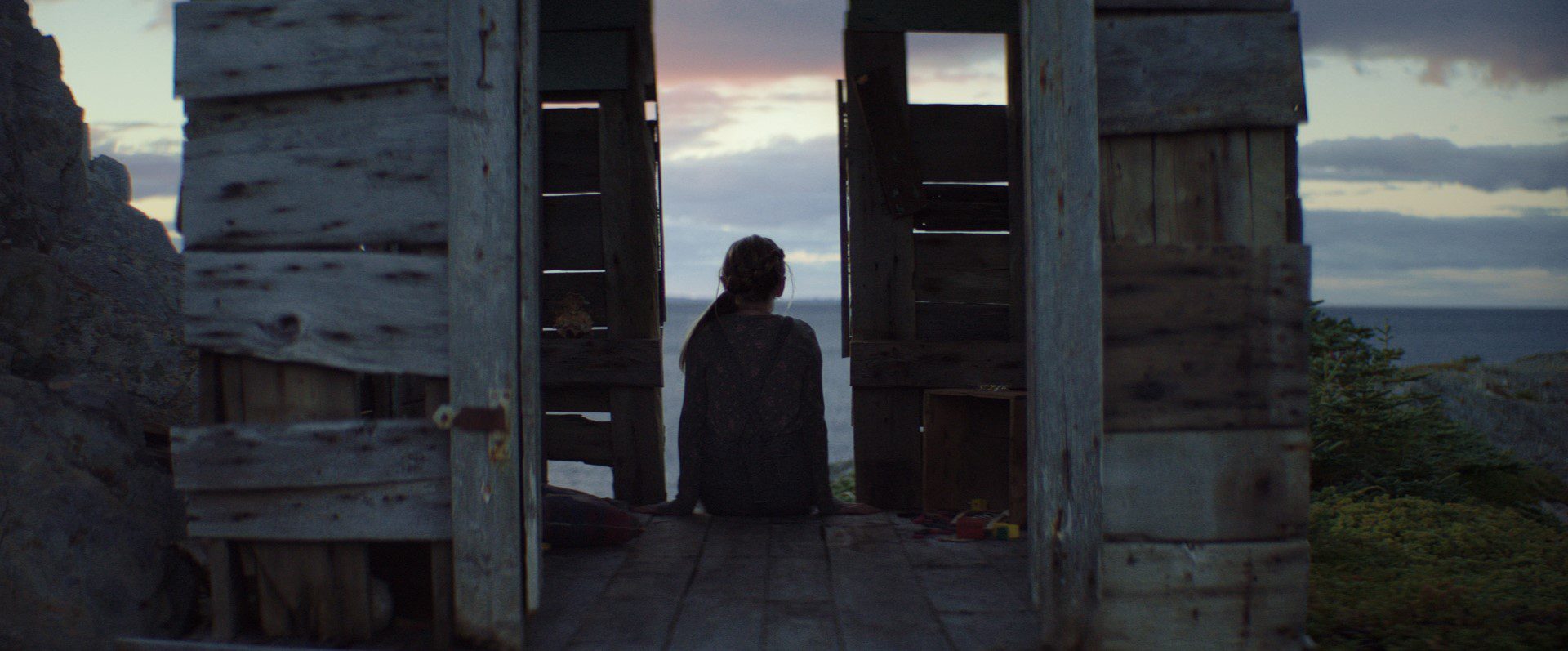
Set in Toronto, Tenzin tells the story of Tenzin (Tenzin Kelsang), a Tibetan Canadian grieving the loss of his brother back home. As a form of non-violent protest against the Chinese occupation of the country, Tenzin’s brother self-immolates, being branded a martyr by his countrymen. As he reflects upon the impact made by his brother’s death, Tenzin feels the burden of supporting the cause yet also finds himself on a journey of self-discovery as well.
Directed by Michael LeBlanc and Joshua Reichmann, Tenzin is a reflective piece that operates on a slow burn. Working in partnership with members of the Tibetan community, Reichmann and LeBlanc have created a piece that reveals the tension of fighting for freedom when you are thousands of miles away from the struggle. With each step into his psychological journey, Tenzin must grapple with the burden of his brother’s sacrifice and ask himself what it means to him to continue the mantle on Canadian soil.
In an interesting way, Reichmann and LeBlanc allow the film to feel the eb and flow of his reflection. As the camera slowly follows Tenzin himself, the viewer can see the inner conflict upon his face as he grapples with what it means to be involved. (It’s also worth noting that this fluidity also played a part in the development of the story as the two directors allowed Tenzin‘s structure to evolve over the course of filming.)
Admittedly, despite its brief runtime, Tenzin feels much longer. However, there’s little doubt that this is intentional. Tenzin’s pacing ensures that the viewer sits in the moment and absorbs its quiet nature. This is a film that wants its audiences to feel present with its characters, allowing themselves to feel centered. (“Are you here?,” Tenzin is repeatedly asked, just as is the audience.) In this way, the film can become an uncomfortable experience, not because of disturbing content but simply because it demands the viewer to quiet themselves. Much of the film plays out with natural audio and very limited dialogue. There is no frenetic action, memorable dramatic tension or fiery speeches.

As Tenzin walks and explores his life, we are left to experience life along with him.
In this sense, there’s also a deeply rooted spirituality within Tenzin as well. Despite its lack of dialogue, Tenzinhas a lot to say about what it means for the spirit to call us to help change the world, even if we live in a country that doesn’t suffer the same struggles as others. Fueled by Buddhist tenets and visuals, Tenzin speaks to the soul and calls it to look towards justice. Unsettled by the sacrifice of his brother, Tenzin himself finds himself on a quest to discover his calling and bring hope to a broken world.
It’s for this reason that Tenzin is such a complicated film. Profoundly present in the moment, it insists that the viewer reflect on what it means to be spiritually connected and stand together with others. However, at the same time, there will be many who struggle with the long silences of Tenzin’s journey as well. After all, with its slow pacing and whisper-level volume, one cannot help but struggle as they slow down long enough to sit within its quiet world.
But, for Tenzin, that struggle is exactly the point.
Tenzin is available in theatres on Friday, March 17th, 2023.




